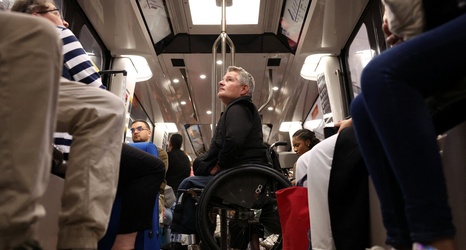During a trip to Paris last November, Samantha Renke just couldn’t seem to find a taxi that could accommodate her motorized wheelchair.
“Every time I logged on, it just kept saying, ‘Unavailable, unavailable, unavailable,’” Ms. Renke said, recounting her struggle to book an accessible cab using the G7 taxi app. Eating out was also a problem for Ms. Renke, a 38-year-old British actress and disability campaigner who has a genetic condition commonly known as brittle bones: Too few restaurants had step-free access.
As Paris prepares to welcome around 15 million visitors — an estimated 350,000 with disabilities — for the Olympics and Paralympics, the city is still working to fulfill its promise to make itself “universally accessible” before the opening ceremony, on July 26.
